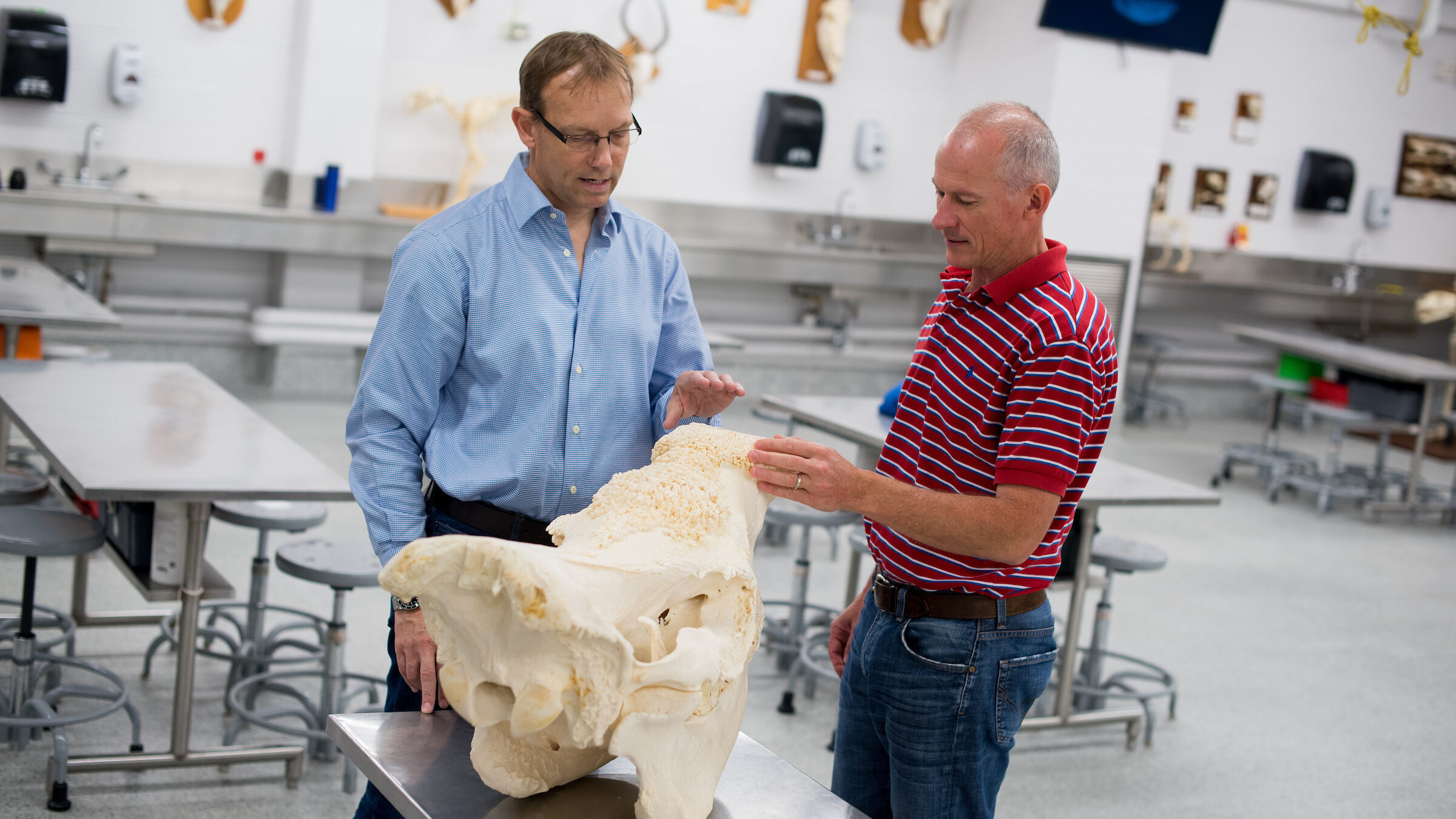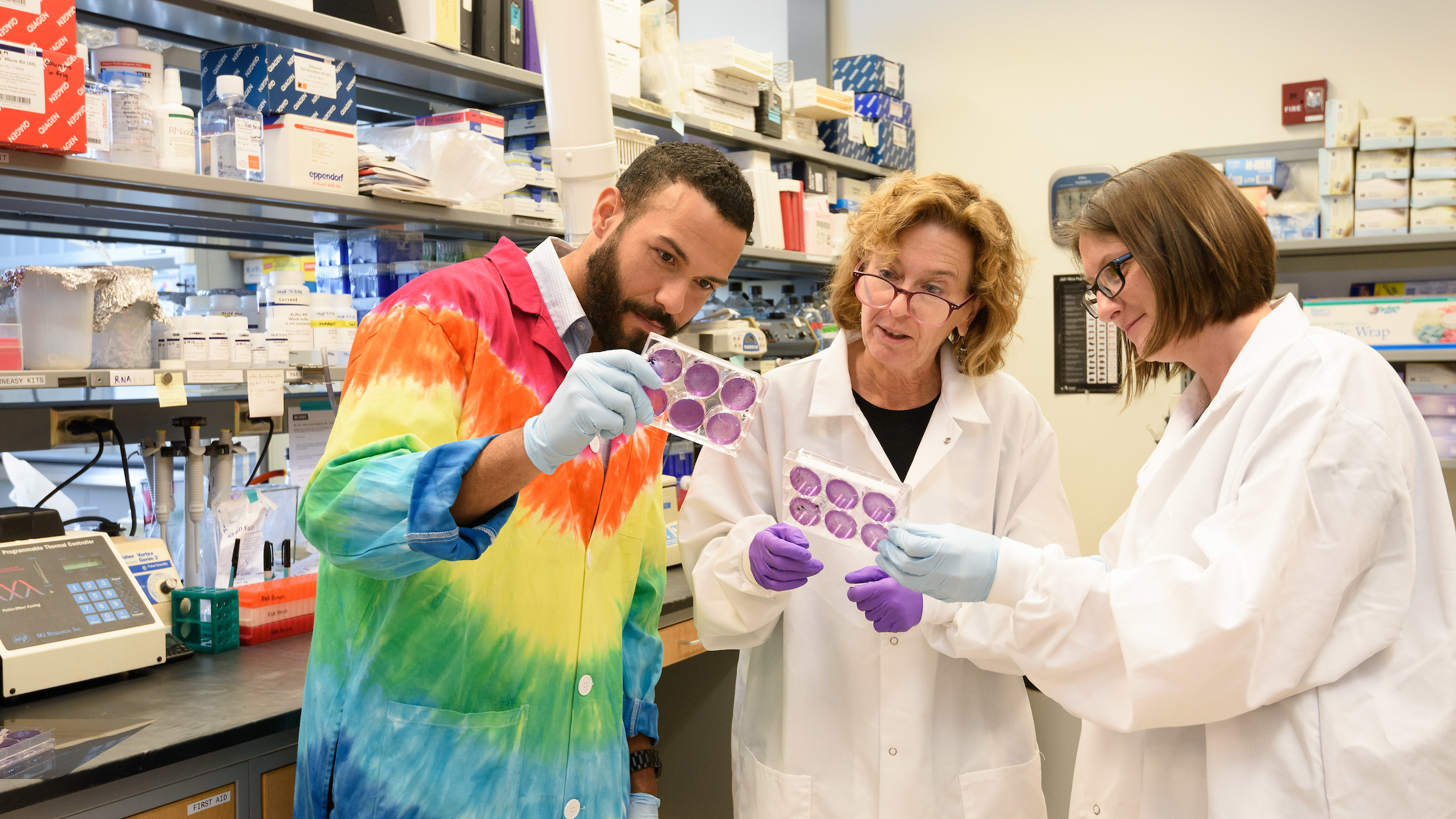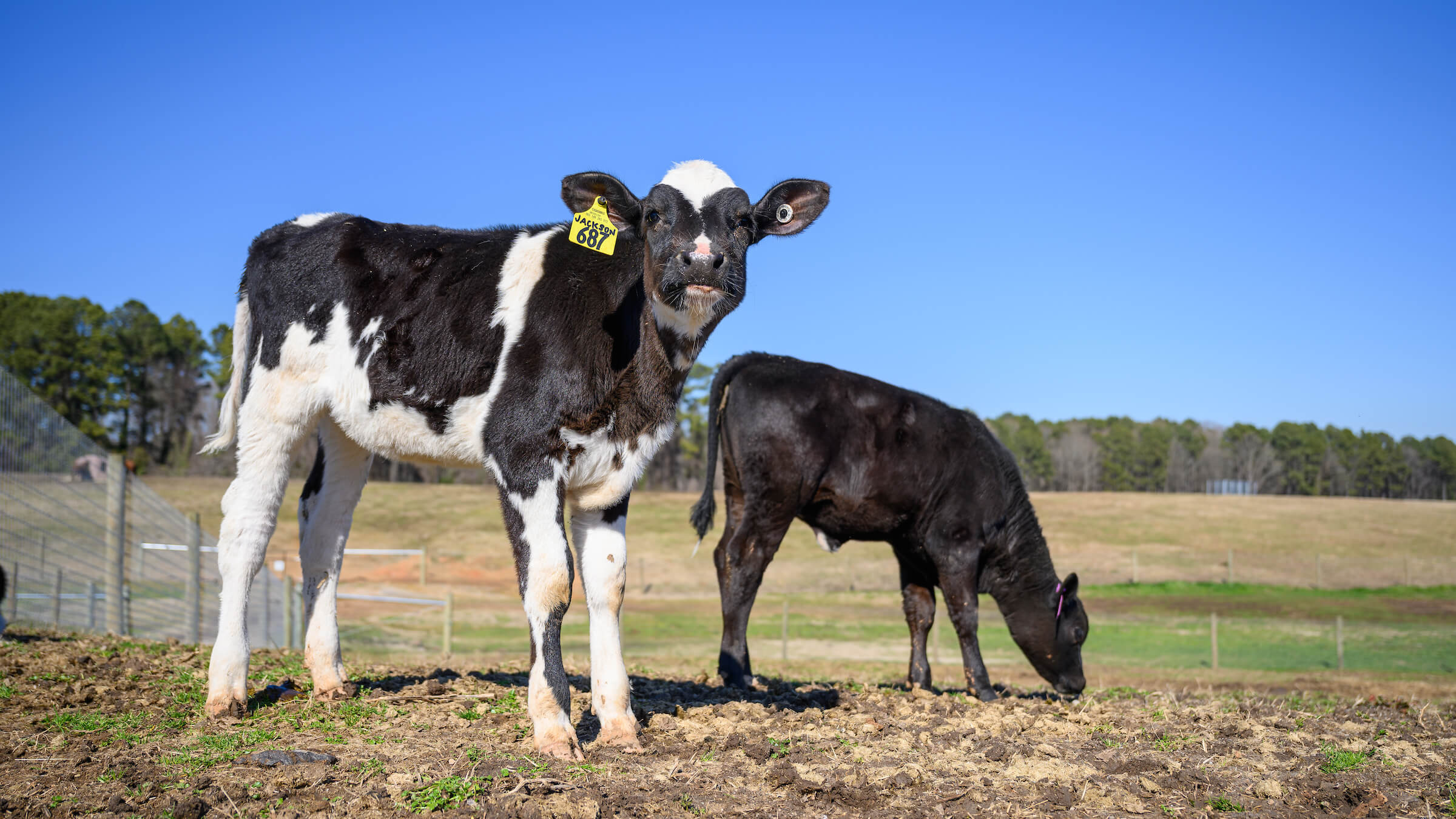DVM Program
Ranked as one of the top veterinary educational programs in North America, the NC State College of Veterinary Medicine is one of the few to offer an onsite teaching animal unit that operates as a working farm.
DVM Program Overview
At the NC State College of Veterinary Medicine, world-renowned faculty lead extraordinary programs in learning and discovery. We instruct students in a range of scientific disciplines related to health and disease control in animals. In addition to experiencing foundational classes in medical topics, students are trained in clinical skills needed to diagnose and treat illness in animals.
The clinical program at NC State College of Veterinary Medicine provides a heavy emphasis for actual “hands-on” clinical practice and is demanding both physically and mentally. Students select “focus areas” to increase their depth of training in their intended area of post-graduate activity while still receiving a broad veterinary education.
Faculty also encourage and challenge students to develop the personal and professional knowledge and skills needed to serve a global community.
The Evolution of an Expert
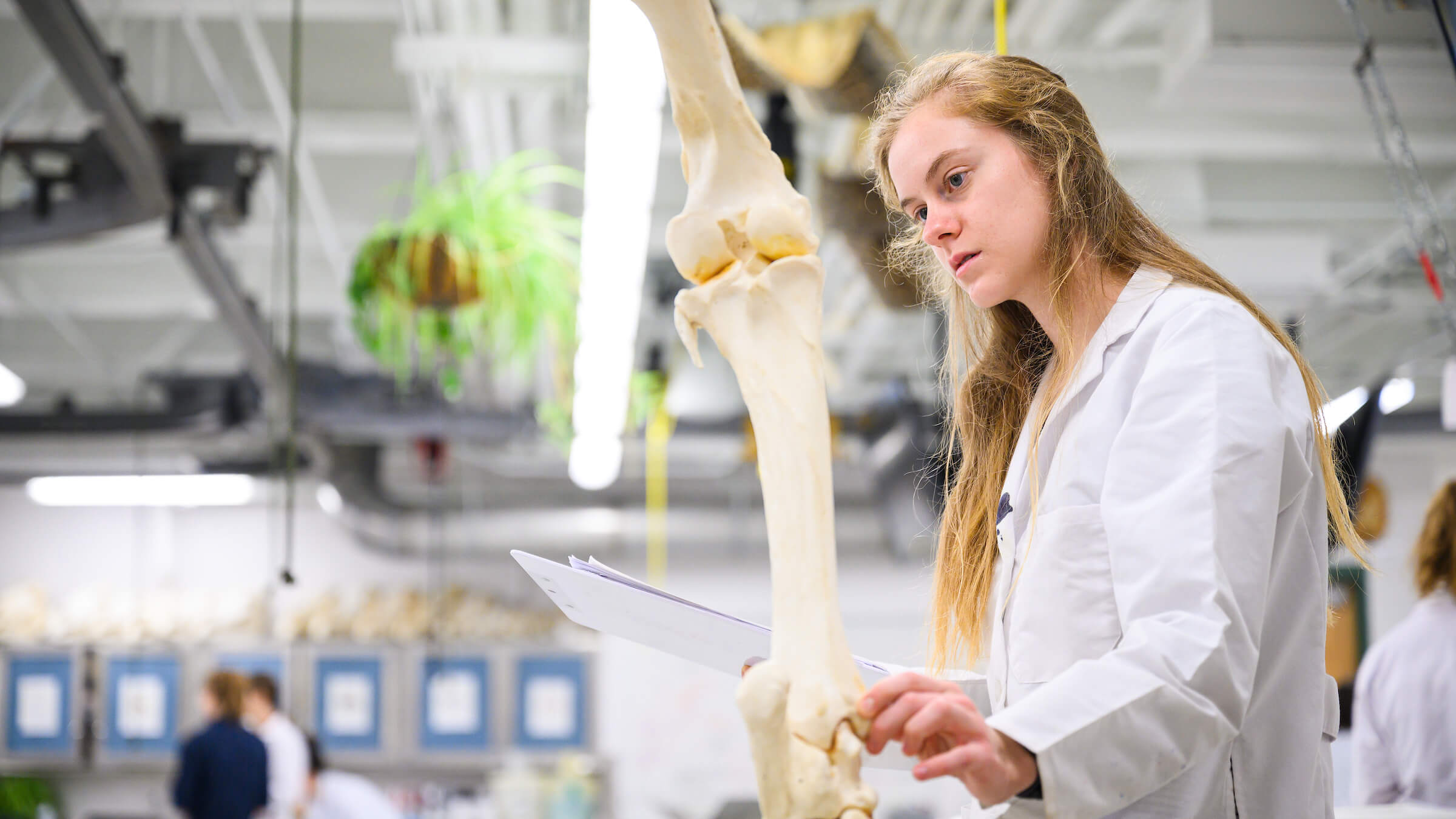
Knowledge
A graduate will effectively use knowledge of comparative medical science in the provision of veterinary clinical care and other contexts in which veterinary medicine plays a key role. This is characterized as the ability to:
- Possess and apply the knowledge needed to solve animal health problems.
- Locate the needed knowledge efficiently and successfully, using contemporary media and technology to access and manage information.
- Critically evaluate information and its sources.
- Integrate medical and scientific information and apply it to the solution of animal health problems.
Skills
A graduate will effectively use cognitive and psychomotor skills in the practice of veterinary clinical care and other contexts in which veterinary medicine plays a key role. This will be characterized as the ability to:
- Identify, define and analyze clinical problems of a diverse range of species.
- Identify or create processes to solve clinical problems in a diverse range of species.
- Interpret facts and data in the context of the clinical problems to be solved.
- Design preventative and therapeutic plans for common medical problems of animals and animal-human disease interactions.
- Perform surgical and medical procedures needed to care for veterinary patients, demonstrating acceptable standards of animal handling, pain control, sterility, instrument and device handling, tissue handling and safety.
- Perform imaging and other diagnostic procedures and accurately interpret obtained data used for the diagnosis and treatment of disease in animals.
- Use scientific methods to investigate problems and use research-based information in the clinical care of veterinary patients.
Awareness
A graduate will effectively use awareness of local, national, international and professional communities in which he or she practices to meet the needs of society in an effective and ethical manner. This will be characterized as the ability to:
- Acknowledge personal responsibility for one’s value judgments and behavior.
- Understand and accept social, cultural, global and environmental responsibilities, particularly as they relate to animal welfare, sustainability of animal resources, and One Health.
- Demonstrate professionalism in the face of societal diversity, including racial, ethnic, gender, sexual orientation, socio-economic and cultural differences.
- Work with, manage, and lead others in ways that facilitate their contribution to the organization and the wider community.
- Use communication as a tool for interacting and relating to others, demonstrating patience, compassion and empathy.
- Make effective use of oral, written, and visual means to critique, negotiate, create and communicate understanding.
- Apply sound business and management principles to the organizations in which one works.
- Operate within the legal constraints of the society in which one lives.
- Exhibit truth, honesty, integrity, open-mindedness, fairness and generosity.
Lifelong Learning
A graduate will continuously update his or her knowledge, skills and awareness. This will be characterized as the ability to:
- Be independent learners who take responsibility for their own learning and practice continuous reflection, self-evaluation and self-improvement.
- Critically evaluate one’s current knowledge, skills and awareness, recognizing areas for improvement.
- Be open to new ideas, methods and ways of thinking and be able to identify processes and strategies to learn and meet new challenges.
- Have a personal vision and goals and be able to work toward these in a sustainable way.
The Road to Becoming a Veterinarian
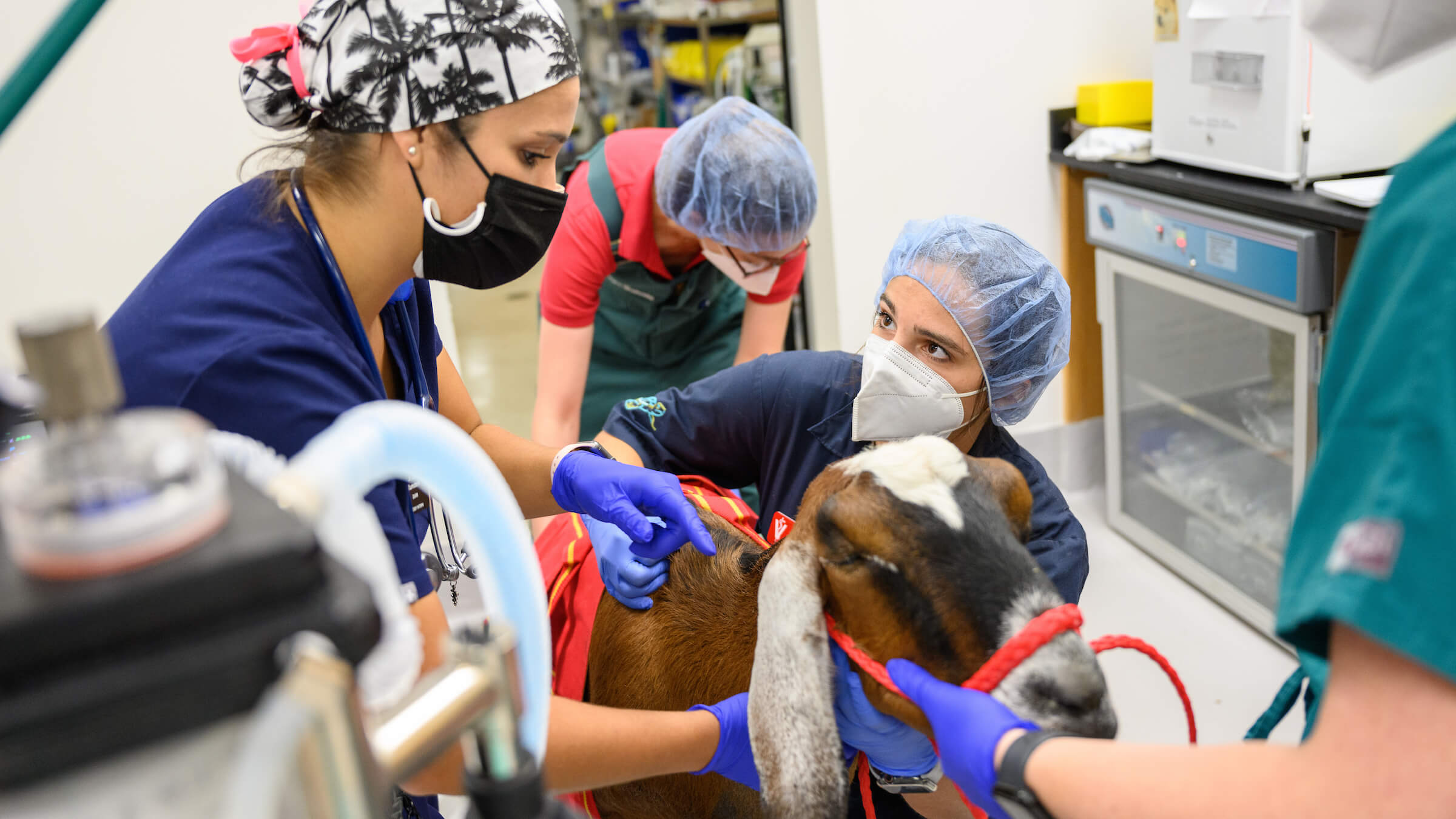
Veterinarian’s Oath
Adopted by the AVMA House of Delegates, July 1969
“Being admitted to the profession of veterinary medicine, I solemnly swear to use my scientific knowledge and skills for the benefit of society through the protection of animal health, the relief of animal suffering, the conservation of livestock resources, the promotion of public health, and the advancement of medical knowledge. I will practice my profession conscientiously, with dignity, and in keeping with the principles of veterinary medical ethics. I accept as a lifelong obligation the continual improvement of my professional knowledge and competence.”
